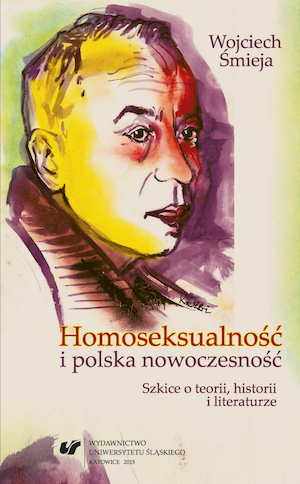Homoseksualność i polska nowoczesność. Szkice o teorii, historii i literaturze
Homosexuality and Polish Modernity. Sketches on Theory, History, and Literature
Author(s): Wojciech Śmieja
Subject(s): Social Sciences, Language and Literature Studies, Studies of Literature, Sociology
Published by: Wydawnictwo Uniwersytetu Śląskiego
Keywords: Polish literature; homosexuality; modernity; masculinity; queer;gender;
Summary/Abstract: The first out of five parts that comprise Homosexuality and Polish Modernity.Sketches on Theory, History, and Literature, presents theoretical and methodologicalissues. Articles in this part provide the quintessence of discussions onthe history of sexuality, methodology (constructionism vs. essentialism), thestatus of psychoanalysis, as well as their relations with the queer theory. Themost important postulate that comes as the aftermath of these disputes is thequestion of extending local knowledge. The reception of international studieshas always been uncritical, the result of which was the acquisition of cognitiveschemata that are not necessarily adequate in the context of Polish studies. Oneof these schemata might be the assumption that the category of the homosexualemerges in Polish society and culture according to the same models (defined byMichel Foucault) as it happened in Western Europe. This may, however, lead tothe neglect of the fact that description done by Foucault is not the only possibleone. Furthermore, Foucault himself regarded it as a mere sketch which needsto be specified more precisely. Regardless of the extent to which we considerFoucault’s ideas expressed in The Will to Knowledge as final, we cannot, however,make it part of our everyday life. Therefore, to propose a Polish version of the“history of sexuality” is a burning issue. Otherwise, when undone, it will fail todepict a significant part of our cultural self-knowledge.I satisfy my desire to write of a Polish version of the “history of sexuality”in the second part of this book. I explore the questions of the two homosexualscandals from the turn of the 19th and 20th centuries – that is, a scandal ofPhilip, Prince of Eulenburg, and a case of Oscar Wilde. Both the scandals onthe European scale, are presented in the light of Polish public opinion and thencontemporary politics. I have derived form documents form that époque, namely,the press, the general public texts, etc. The subject of the deeper reflection is therelation between a discursively constructed sexual and gender identity, andPolish national identity (then permanently threatened), which can be easily seenin the case of the scandal of Eulenburg.The subsequent parts deal solely with literature. The part entitled The Geopoeticsof Masculine Sexuality comprises three sketches, where the author analysesthe relations between space and a feeling of desire from the Interwar Period tocontemporary times. The provided analysis seems interesting, since Western Europeanas well as American studies have a tendency to create big-city enclaves offreedom and homosexual ghettos with patterns of behavior and subcultures belongingthere, whereas in the Polish agrarian tradition, such places did not evenspace in Polish culture where this non-normative desire may be able to manifestitself, and in what way this space has been rendered in literature.The fourth part of this book focuses on the personae of Jerzy Andrzejewski.His book, Ashes and Diamonds, has never been genuinely interpreted through theprism of gender studies. By presenting four approaches to Andrzejewski, the authormakes an attempt to do so. The author of Ashes and Diamonds, posthumouslydoomed to literary purgatory, while in his lifetime interpreted from the politicalperspective, appears as a tragic misfit, and his works are viewed as a record ofrejection, erotic obsession, and self-humiliation.The final part of the book is devoted to the homosexual personae as well asmotifs in the works of Stanisław Vincenz, Michał Choromański, Wilhelm Mach,and Krzysztof Boczkowski. Moreover, there is a sketch on the “ideology of thebody” in the literature of the Interwar Period. The books analyzed here are readrather separately; however, juxtaposed next to others, they prove that even if notall of us “have a pink tongue” (the term used by Błażej Warkocki), it is still possibleto hear it — this pink tongue — in literature more frequently than we might think.
- E-ISBN-13: 978-83-8012-323-6
- Print-ISBN-13: 978-83-8012-322-9
- Page Count: 488
- Publication Year: 2015
- Language: Polish
- eBook-PDF
- Table of Content
- Introduction

